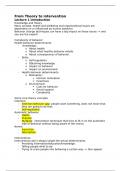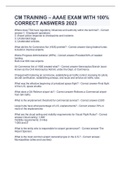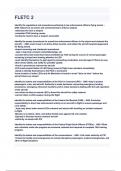Summary
From theory to intervention (FTTI) summary exam PATHS model
- Course
- Institution
Summary for the theory to intervention exam. Used this one myself and includes everything you need to know (8,5 was my grade). Is all about the PATHS model.
[Show more]





